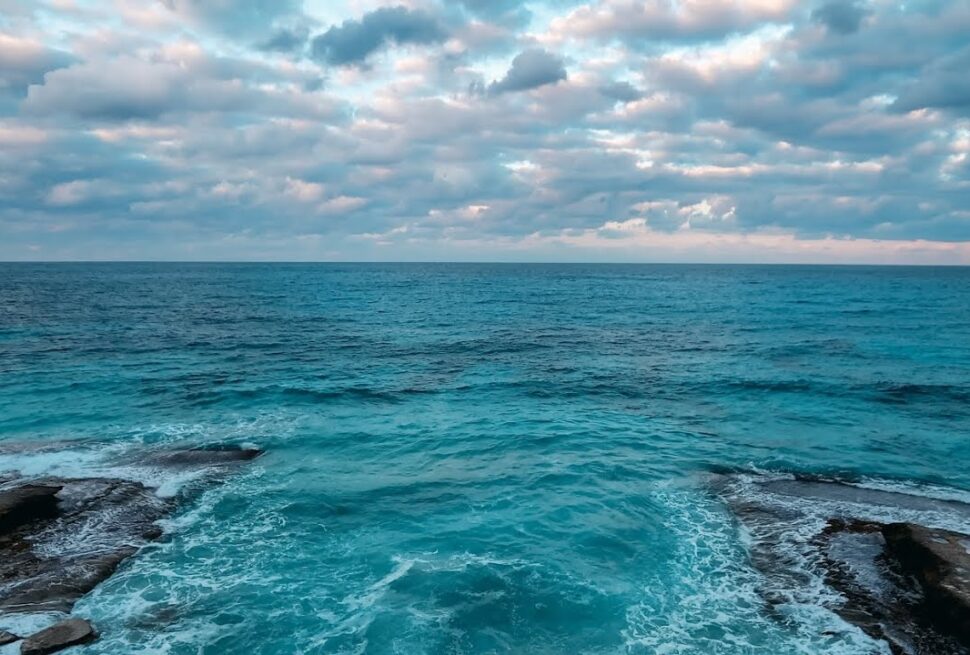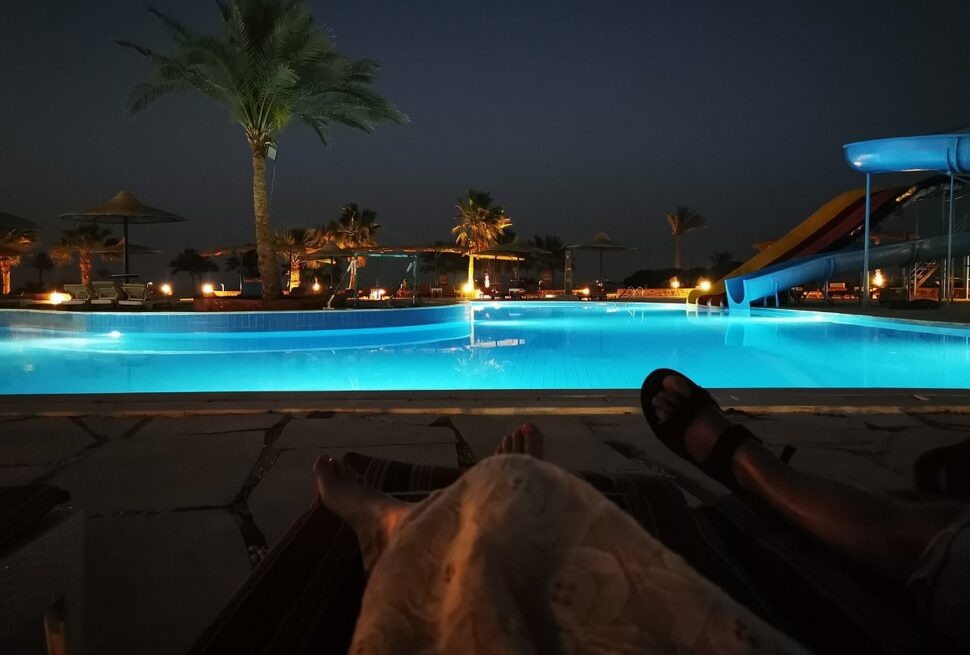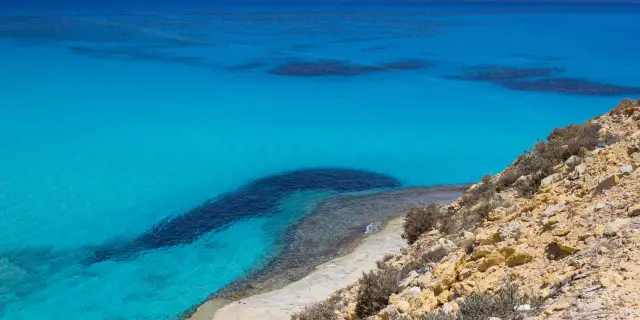
Introduction
Overview of Siwa Oasis
Nestled like a hidden gem in the heart of Egypt’s Western Desert, Siwa Oasis is a breathtaking marvel that my friends and I stumbled upon during our travels. With its sandy landscapes, sparkling salt lakes, and lush palm groves, it felt like stepping into a fairytale. This enchanting oasis has a rich history, home to the legendary Oracle of Amun, which has drawn seekers and adventurers for centuries.
Importance of Siwa Tours
Experiencing Siwa through guided tours is essential for embracing its full beauty and cultural significance. Here’s why these tours are indispensable:
- Local Insight: Guides share stories and folklore that you simply can’t find in guidebooks.
- Access to Hidden Gems: Our guide led us to off-the-beaten-path spots, making the adventure truly unforgettable.
- Connection with Nature: Exploring the salt lakes and desert landscapes was far more rewarding in a knowledgeable company.
Siwa is not just a destination; it’s an experience that connects you to its past, people, and natural wonders.

How to Get to Siwa
Transportation Options
Getting to Siwa Oasis is part of the adventure! While it may feel remote, there are several ways to reach this magical place. My friends and I chose to take a bus from Cairo, which was both affordable and scenic. Here are some popular options:
- Bus Services:
- Regular buses from Cairo to Siwa are available, taking around 10-12 hours.
- Go buses are comfortable and reasonably priced.
- Private Car Hire:
- Ideal for those who prefer flexibility. Just be prepared for the winding desert roads!
- Train and Taxi Combo:
- Take a train to Marsa Matrouh, followed by a taxi to Siwa.
Tips for Traveling to Siwa
As you plan your journey, keep these tips in mind to enhance your Siwa experience:
- Book in Advance: Buses can fill up quickly, especially in peak seasons.
- Pack Snacks: The remote nature of Siwa means limited food options—having snacks on hand is a lifesaver!
- Stay Hydrated: The desert can be unforgiving, so water is your best friend.
My journey to Siwa was filled with excitement and a bit of spontaneity. Preparing ahead made it all the more enjoyable!

Accommodation in Siwa
Types of Accommodation
Once you make your way to Siwa, you’ll find an array of accommodations to suit your taste and budget. During my visit, I was pleasantly surprised by the variety available. Here’s a quick breakdown:
- Eco-lodges: Great for those who want to immerse themselves in nature. These often use sustainable materials.
- Traditional Guesthouses: Experience local hospitality firsthand. Staying in a guesthouse allows you to connect with Siwan culture.
- Luxury Resorts: Pamper yourself with spa services and stunning views, perfect for a relaxing getaway.
Top Recommended Hotels
While exploring Siwa, my friends and I stumbled upon some amazing places to stay. Here are a few that I highly recommend:
- Adrere Amellal: This eco-lodge is famous for its luxurious yet rustic feel, featuring natural materials and stunning views.
- Siwa Paradise Hotel: With its comfortable rooms and friendly staff, this hotel became our home base for exploring.
- Aldawoda Siwa Hotel: Offering traditional Siwan architecture, it was the perfect spot to unwind after long days of adventure.
Finding the right accommodation in Siwa can enhance your stay and provide you with lasting memories. Each place offers a unique experience, making your journey all the more special!

Exploring Salt Lakes in Siwa
Overview of Siwa’s Salt Lakes
As I ventured further into Siwa, the salt lakes completely captivated my senses. The shimmering, salt-crusted shores reflected the sun like glittering jewels. The most famous, Lake Siwa, is renowned for its therapeutic properties, drawing visitors who seek both beauty and wellness. Surrounded by breathtaking landscapes, these lakes create a serene atmosphere unlike any other.
Activities at the Salt Lakes
While soaking in the tranquility, I discovered a plethora of activities that made my time at the salt lakes unforgettable:
- Floating in the Water: The high salt concentration allows you to float effortlessly, providing a unique experience that made me feel weightless!
- Photography: With vibrant colors and striking landscapes, it’s a photographer’s paradise. I captured stunning shots at sunset that still take my breath away.
- Mud Bathing: The mud around the lakes is rich in minerals. I joined in with locals for a delightful mud bath, which left my skin feeling rejuvenated.
These activities provide not just fun, but an opportunity to connect with the enchanting environment of Siwa. My adventures at the salt lakes truly made my trip a remarkable journey!

Visiting Ancient Ruins
Historical Sites in Siwa
After an exhilarating time at the salt lakes, I was excited to explore the ancient ruins that adorn Siwa’s landscape. The history here is rich and palpable. The most iconic site is the Temple of the Oracle, where Alexander the Great sought guidance, and I couldn’t help but feel a sense of awe walking through its remnants. Other notable historical sites include:
- Shali Fortress: A crumbling hilltop fort that offers stunning panoramic views of the town and the surrounding desert.
- The Tombs of the Nobles: These beautiful, faded murals depict scenes from ancient Siwan life, providing a glimpse into the past.
Guided Tours of Ancient Ruins
To truly appreciate these historical treasures, I joined a guided tour, and it was worth every penny! Our guide was a fountain of knowledge, bringing each site to life with fascinating stories:
- Personalized Experience: A smaller group meant we could ask questions and engage in discussions, which deepened our understanding of Siwa’s history.
- Convenient Transportation: The tour made it easy to navigate between sites without the stress of finding our way.
- Cultural Insights: We learned about local traditions and customs tied to the ruins, making the experience even richer.
Visiting these ancient ruins not only deepened my appreciation for Siwan culture but also forged lasting memories of my adventure through time. It was like stepping into a captivating history book!

Discovering Siwan Culture
Traditional Practices
After immersing myself in the ancient ruins, I was eager to understand Siwan culture on a deeper level. The local customs are rich and fascinating, deeply rooted in their connection to the desert. During my visit, I was fortunate enough to witness some traditional practices:
- Olive Oil Production: Siwa is known for its high-quality olive oil. I even participated in a small workshop where we pressed olives, learning the entire process from tree to bottle.
- Festivals: I learned about their vibrant local festivals, which celebrate harvests and cultural heritage. If you’re lucky enough to visit during these times, the atmosphere is infectious!
Local Cuisine and Handicrafts
As I continued exploring, Siwan cuisine and handicrafts truly delighted my senses. Dining in Siwa was an experience in itself:
- Local Dishes: I tried “Koshari, a hearty mix of lentils and pasta, and Besara, a fragrant fava bean dip that became my new favorite. The flavors were incredible!
- Handicrafts: Siwa is known for its stunning pottery and woven textiles. I spent hours at local markets, collecting beautiful pottery pieces that now decorate my home.
Experiencing the essence of Siwan culture—from food to traditional practices—made my journey unforgettable. It gave me a deeper appreciation for the people and the land, creating rich memories that I’ll cherish forever!

Outdoor Activities in Siwa
Desert Safari Adventures
With the cultural experiences behind me, I was thrilled to dive into the thrilling outdoor activities Siwa had to offer. The moment I set off on a desert safari, I knew this would be an adventure of a lifetime. Imagine gliding over golden dunes in a 4×4, the wind whipping through my hair, and the sun painting the sky in shades of orange and pink.
- Dune Bashing: Riding over the dunes was a heart-pounding experience! The adrenaline rush was just unbelievable.
- Campfire Nights: After the safari, we gathered around a campfire, sharing stories under a canopy of stars while enjoying local tea. It was a perfect ending to the day.
Rock Climbing and Trekking Options
But the adventure didn’t stop there! Siwa’s rugged landscape offers fantastic opportunities for rock climbing and trekking. I decided to explore these thrilling options next:
- Rock Climbing at the Great Sand Sea: While I’m no professional climber, the guided climbs challenged me in the best way possible. The sense of accomplishment upon reaching the top was exhilarating!
- Trekking to the Mountain of the Dead: This trek was breathtaking. The stunning views over the oasis from the mountain made every sweaty step worthwhile.
Outdoor activities in Siwa added an element of excitement to my trip. Whether barreling over sand dunes or scaling rocky cliffs, each adventure unveiled the raw beauty of this enchanting oasis!

Eco-Tourism in Siwa
Sustainability Efforts
After an exhilarating outdoor experience, I was curious to explore how Siwa promoted eco-tourism. As I delved deeper, I discovered a strong commitment to sustainability in the oasis. Many local businesses focus on eco-friendly practices that protect the environment. For example:
- Solar Energy: Several accommodations use solar panels to minimize their carbon footprint, offering clean energy solutions.
- Water Conservation: Siwa’s residents have adopted traditional irrigation techniques that optimize water use in agriculture, preserving vital resources.
Wildlife Conservation Initiatives
Alongside sustainability efforts, wildlife conservation in Siwa captures the essence of eco-tourism. I learned how the community works to safeguard their unique ecosystem. Some noteworthy initiatives include:
- Protection of Native Species: Local efforts aim to protect endangered species native to the region, such as the Egyptian Tortoise.
- Environmental Awareness Programs: Guided tours often include educational components that raise awareness about local wildlife and the importance of conservation.
Exploring Siwa’s commitment to eco-tourism left me inspired. It’s refreshing to see such dedication to preserving both the environment and the rich biodiversity of this majestic oasis, ensuring it remains a paradise for generations to come!

Shopping in Siwa
Popular Souvenirs
After soaking up the sights and sounds of Siwa, I was eager to bring home some treasures as mementos of my journey. The artisan crafts here are a testament to the rich culture of the oasis. Some of my favorite souvenirs included:
- Handmade Pottery: I stumbled upon beautiful, intricately designed pottery that now brightens up my kitchen.
- Siwan Textiles: The vibrant woven fabrics are perfect for creating unique home decor pieces or gifts for friends.
- Local Olive Oil: I couldn’t resist buying a few bottles of Siwa’s renowned olive oil to savor the taste of the oasis back home.
Best Markets to Visit
Exploring the local markets was an adventure in itself! The vibrant atmosphere and friendly vendors made shopping a memorable experience. Here are a few markets I highly recommend:
- Siwa Bazaar: This bustling market is filled with colorful stalls offering everything from spices to handicrafts. I spent hours wandering around, breathing in the fragrant scents.
- Old Market: Here, you can find more traditional items and engage directly with local artisans. I was delighted to see craftsmen at work, creating their masterpieces.
Shopping in Siwa is not just about picking up souvenirs; it’s about engaging with the culture and bringing home a piece of this enchanting oasis. Each item carries a story, making them all the more special!

Safety Tips for Siwa Tours
Health Precautions
As my amazing adventure in Siwa came to an end, I wanted to ensure that my experience remained positive and healthy. Here are some key health precautions to consider while exploring this beautiful oasis:
- Stay Hydrated: The desert climate can be quite dry and hot. I always carried a reusable water bottle to keep refreshed throughout the day.
- Sun Protection: Be sure to wear sunscreen and a wide-brimmed hat. I learned the hard way after a long day in the sun!
- Medical Kit: Travel with a basic first-aid kit containing essentials like antiseptics and pain relievers, just in case.
Cultural Etiquette to Keep in Mind
Respecting local customs is vital for enjoying your trip and fostering goodwill with the community. I found following these cultural etiquette tips tremendously helpful:
- Dress Modestly: Though Siwa is more laid back than urban centers, modest clothing is appreciated, especially when visiting religious sites.
- Ask Before Photographing: Always seek permission before taking pictures of people, as some may prefer not to be photographed.
- Learn Basic Arabic Phrases: A simple greeting in Arabic can go a long way in bridging connections with the locals.
Being mindful of health precautions and cultural etiquette not only enhanced my experience in Siwa but also helped me connect more deeply with the local community. Embracing these aspects ensured my journey was smooth and respectful!





